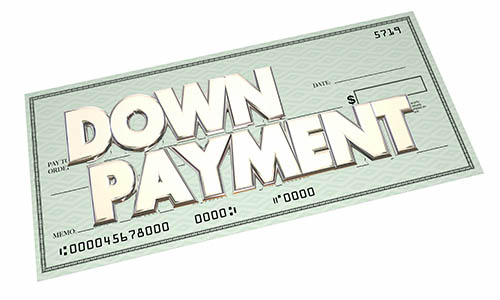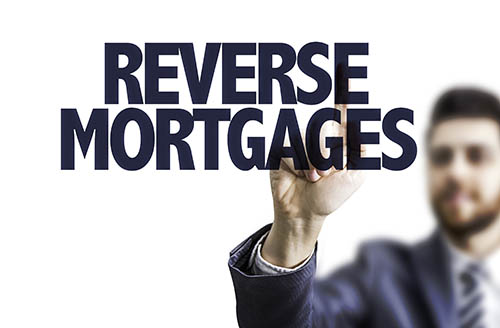 With approximately one million people having purchased vacation homes in the last year, this type of residence is gaining popularity for those who are interested in a home in a beach setting or a vacation hot spot. However, while a second home can seem like a great purchase and solid investment opportunity, there are different requirements that go into this type of purchase. If you’re considering a vacation home, you may want to be aware of the following financial factors.
With approximately one million people having purchased vacation homes in the last year, this type of residence is gaining popularity for those who are interested in a home in a beach setting or a vacation hot spot. However, while a second home can seem like a great purchase and solid investment opportunity, there are different requirements that go into this type of purchase. If you’re considering a vacation home, you may want to be aware of the following financial factors.
The Down Payment Amount
If you currently have a primary residence, you may be aware that you don’t need to put down 20% or even 10% in order to make a home purchase, but things are different when it comes to a vacation home. Because you will be taking on an additional mortgage, there is greater risk involved, and this means you will likely have to put in at least 10 percent. Because of this, many homebuyers utilize the equity they have in their first home to make up the down payment.
About The Credit Score
Most people that have a credit score of more than 500 have the ability to use a mortgage product and purchase a home, but if you’re buying a second property, you’ll need a higher credit score in order to facilitate the purchase. Because there is more risk involved, lenders will want to make sure you’re a good bet. In addition, if you do have a lower credit score, lenders like Fannie Mae may also expect you to put more down to decrease the risk involved for them.
The Income Required
Since you’ve been through the mortgage process for your first home, you’re probably aware that you debt-to-income (DTI) ratio needs to be a certain amount in order to qualify for a mortgage. While your DTI for a primary residence may be a little bit higher since it’s your only payment, this ratio will be lower for your vacation home since it’s higher risk. This means you’ll require a slightly higher income than for your primary residence in order to get approved.
Deciding to purchase a vacation home can be a very exciting concept for many people, but there are a number of different financial requirements that go along with buying another residence. If you’re in the market for a vacation property and are curious about what’s involved, contact your local mortgage professional for more information.

 If you’re just getting into the real estate market, you may have heard that 20% down is the ideal percentage in order to lower your monthly payments and get your mortgage application approved. However, while 20% is often suggested, many people struggle to come up with this amount of money. If you’re staving off home ownership, here are some reasons you may not need to hold off as you long as you thought.
If you’re just getting into the real estate market, you may have heard that 20% down is the ideal percentage in order to lower your monthly payments and get your mortgage application approved. However, while 20% is often suggested, many people struggle to come up with this amount of money. If you’re staving off home ownership, here are some reasons you may not need to hold off as you long as you thought. There are so many details that lead up to the purchase of your dream home that it can be hard to realize it when the closing day is finally upon you. However, when closing day finally arrives, there will still be a few last minute details that need to be taken care of. If you’re getting ready to solidify your home purchase and are wondering about the remaining paperwork and any unknown details, here are some things you can expect when it comes to making your purchase complete.
There are so many details that lead up to the purchase of your dream home that it can be hard to realize it when the closing day is finally upon you. However, when closing day finally arrives, there will still be a few last minute details that need to be taken care of. If you’re getting ready to solidify your home purchase and are wondering about the remaining paperwork and any unknown details, here are some things you can expect when it comes to making your purchase complete. There are few things more exciting than finding your ideal home, but with the rising cost of housing, a person’s dream home can often come with a very high purchase price. If you’re wondering how much home you can truly afford and how your cost of living will fare for your mortgage approval, here are some of the details on what you can expect when it comes to finding a home at an affordable price.
There are few things more exciting than finding your ideal home, but with the rising cost of housing, a person’s dream home can often come with a very high purchase price. If you’re wondering how much home you can truly afford and how your cost of living will fare for your mortgage approval, here are some of the details on what you can expect when it comes to finding a home at an affordable price. Most people who have been on the market for a home are familiar with what the term ‘mortgage’ means, but many have not heard of a reverse mortgage and aren’t aware of how this product can benefit them. If you’re nearing retirement and are contemplating a new home or even relocation to another community, here are the details on a reverse mortgage and how this option may benefit you.
Most people who have been on the market for a home are familiar with what the term ‘mortgage’ means, but many have not heard of a reverse mortgage and aren’t aware of how this product can benefit them. If you’re nearing retirement and are contemplating a new home or even relocation to another community, here are the details on a reverse mortgage and how this option may benefit you.